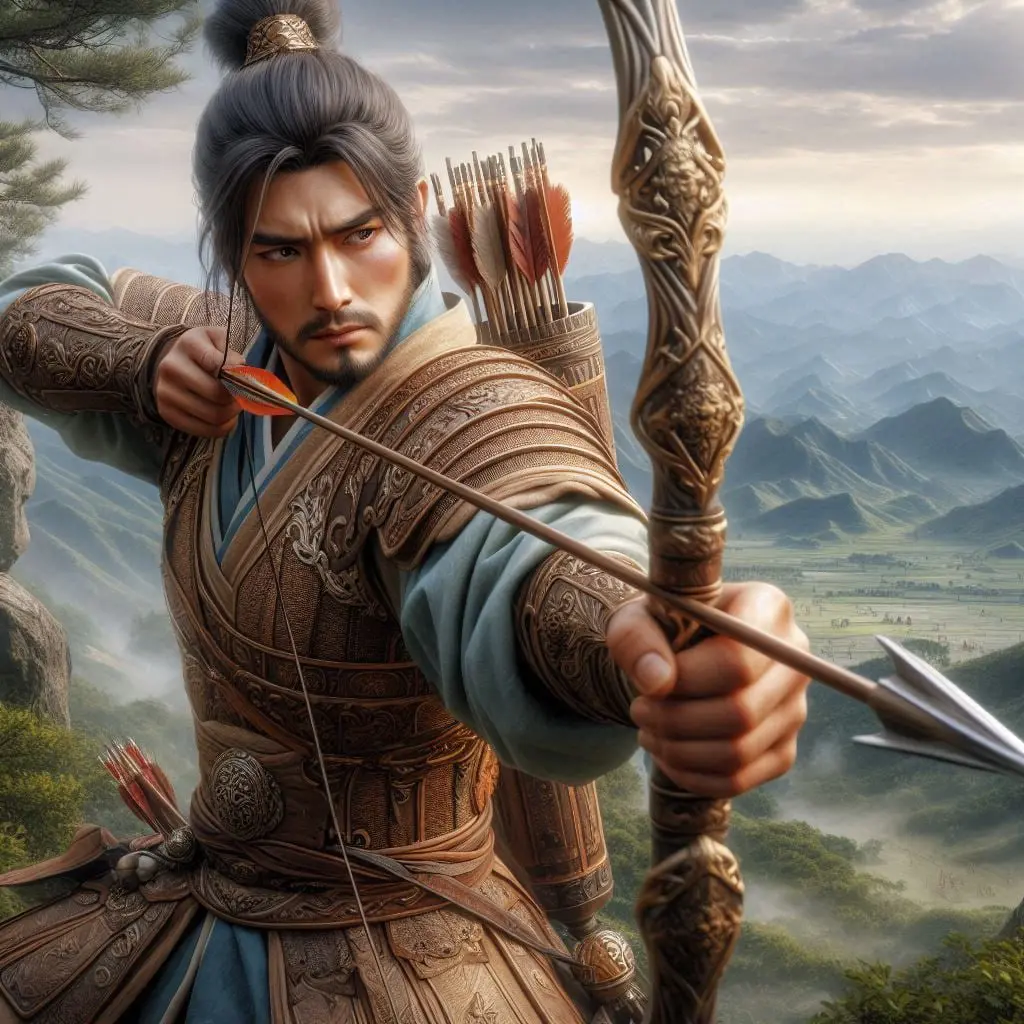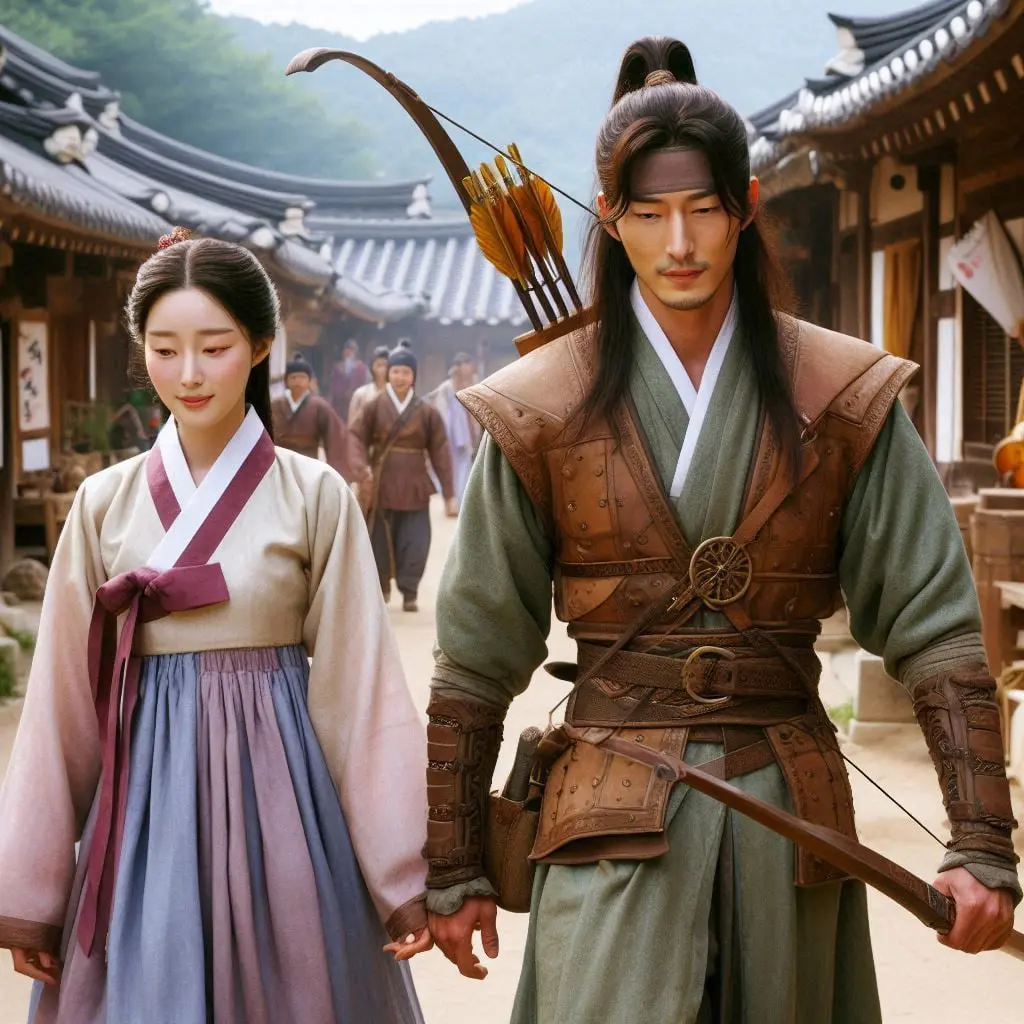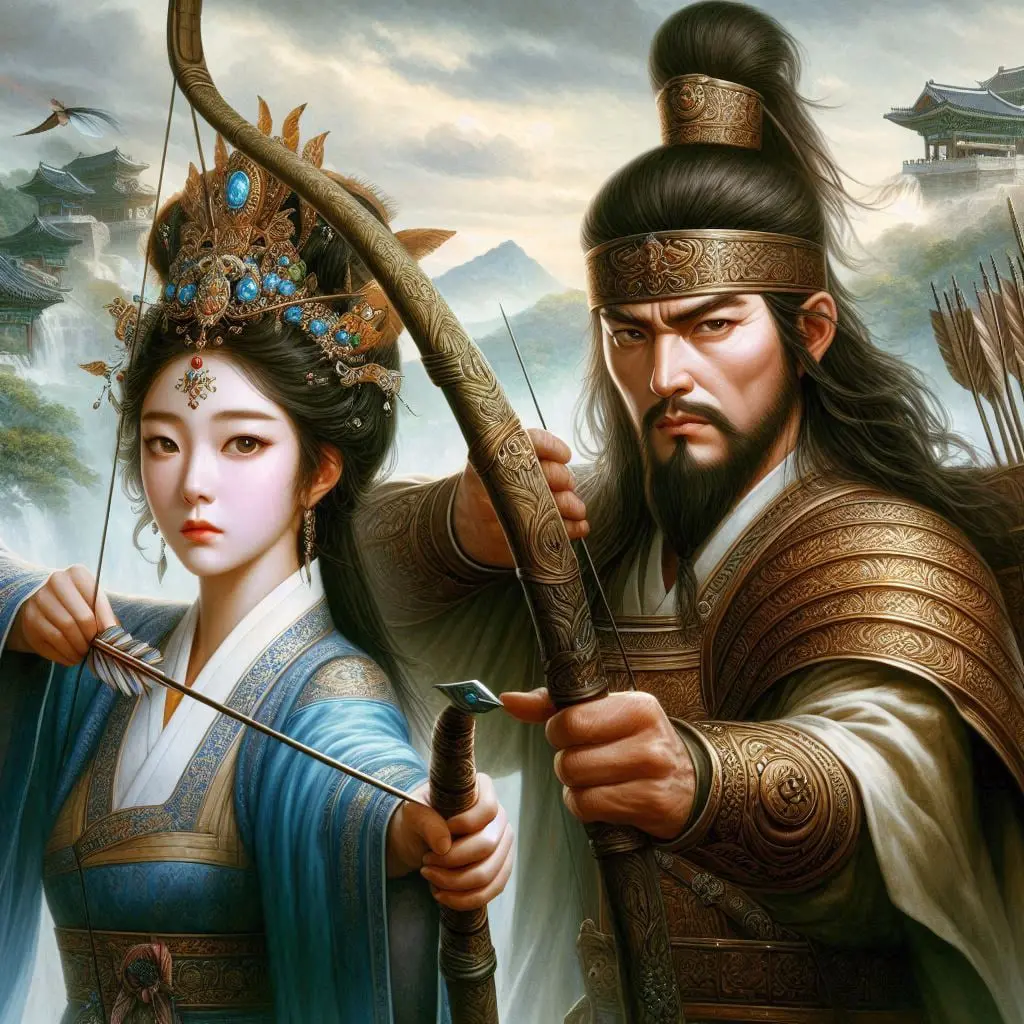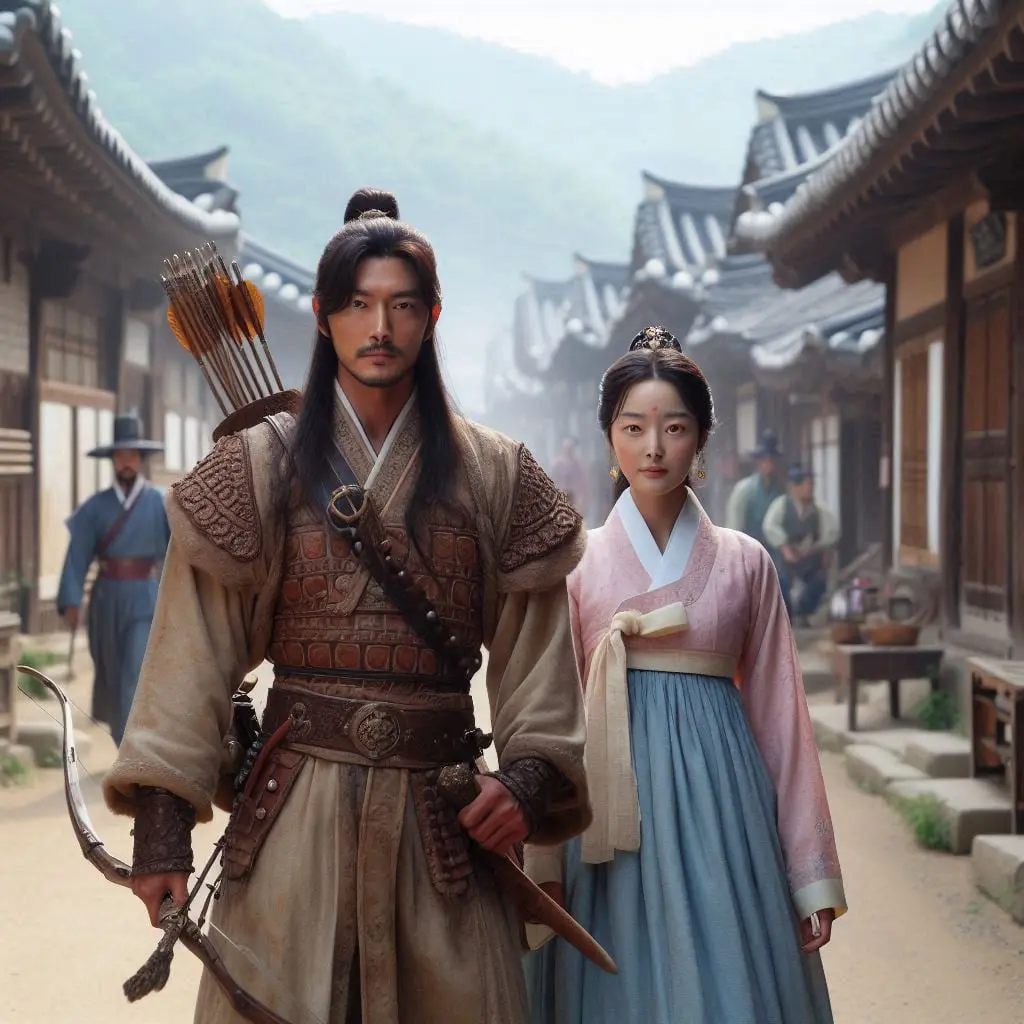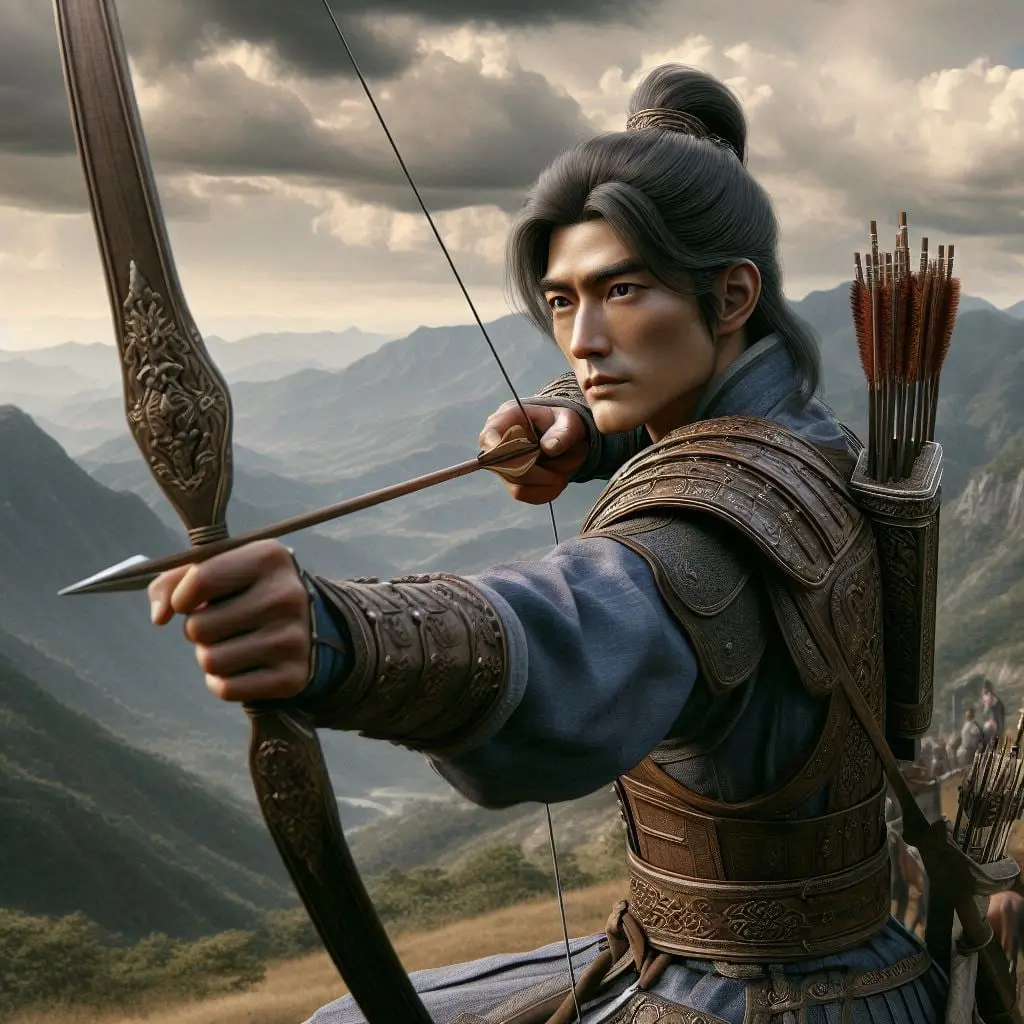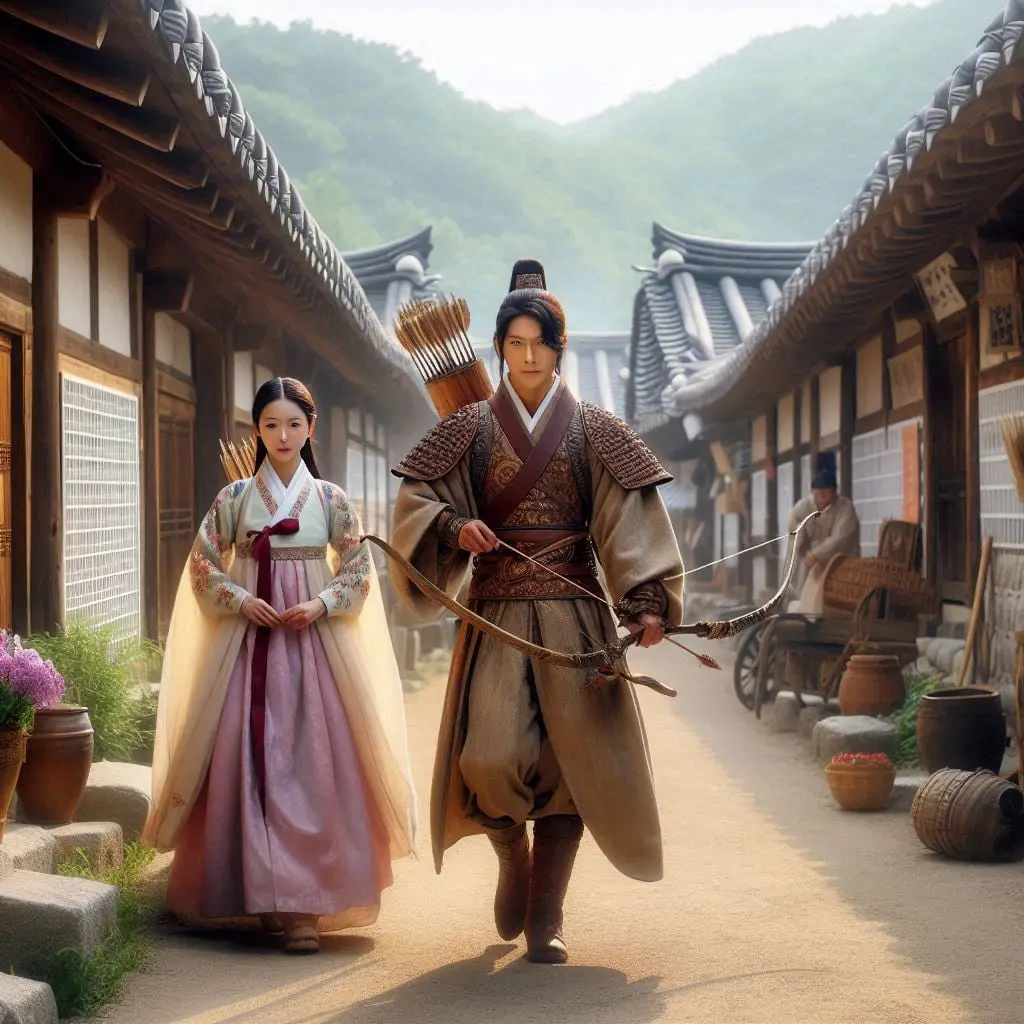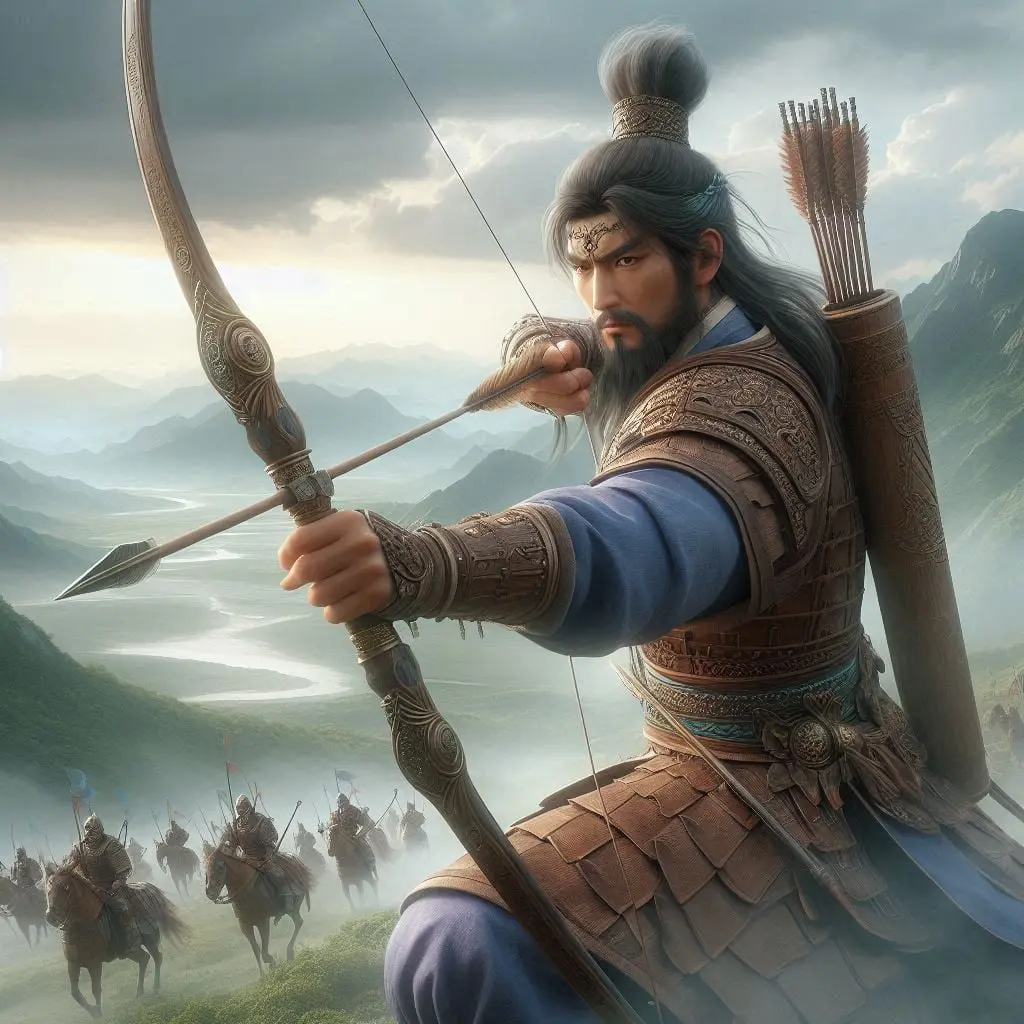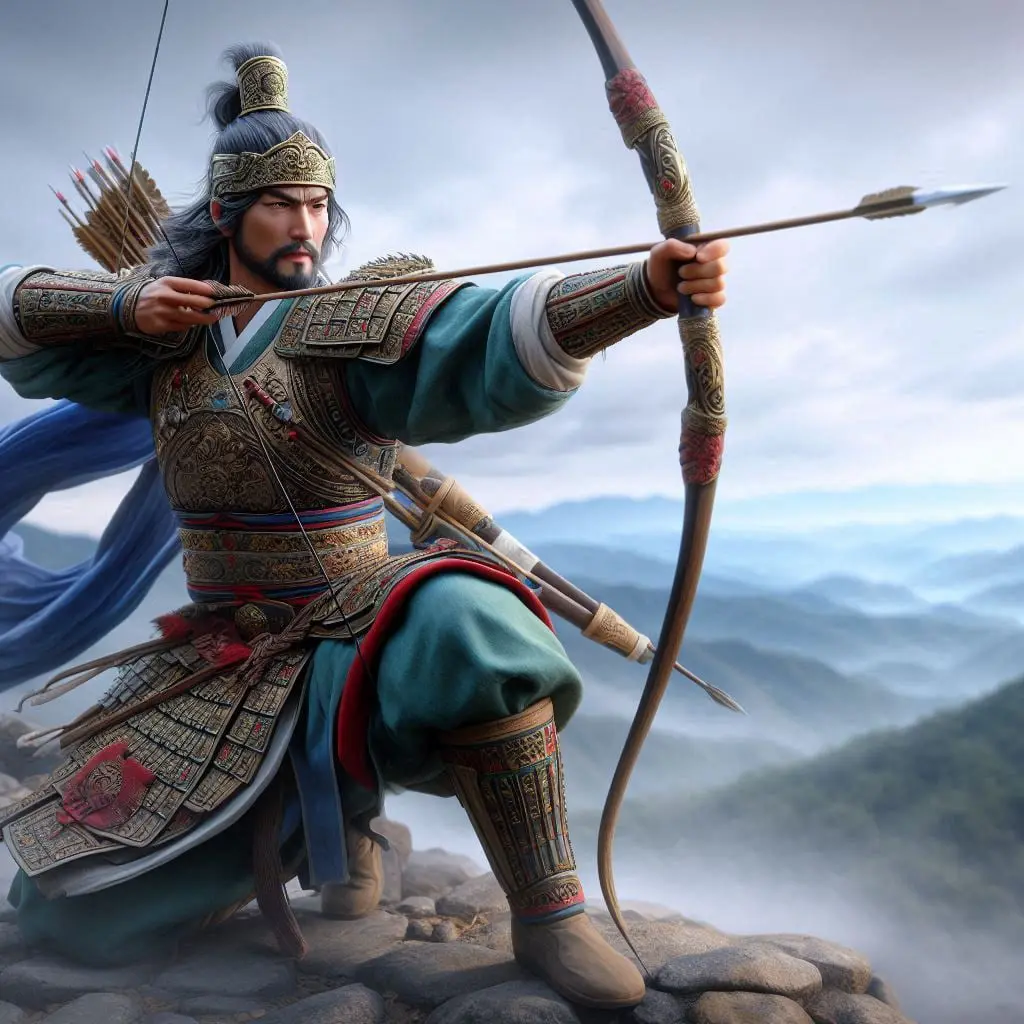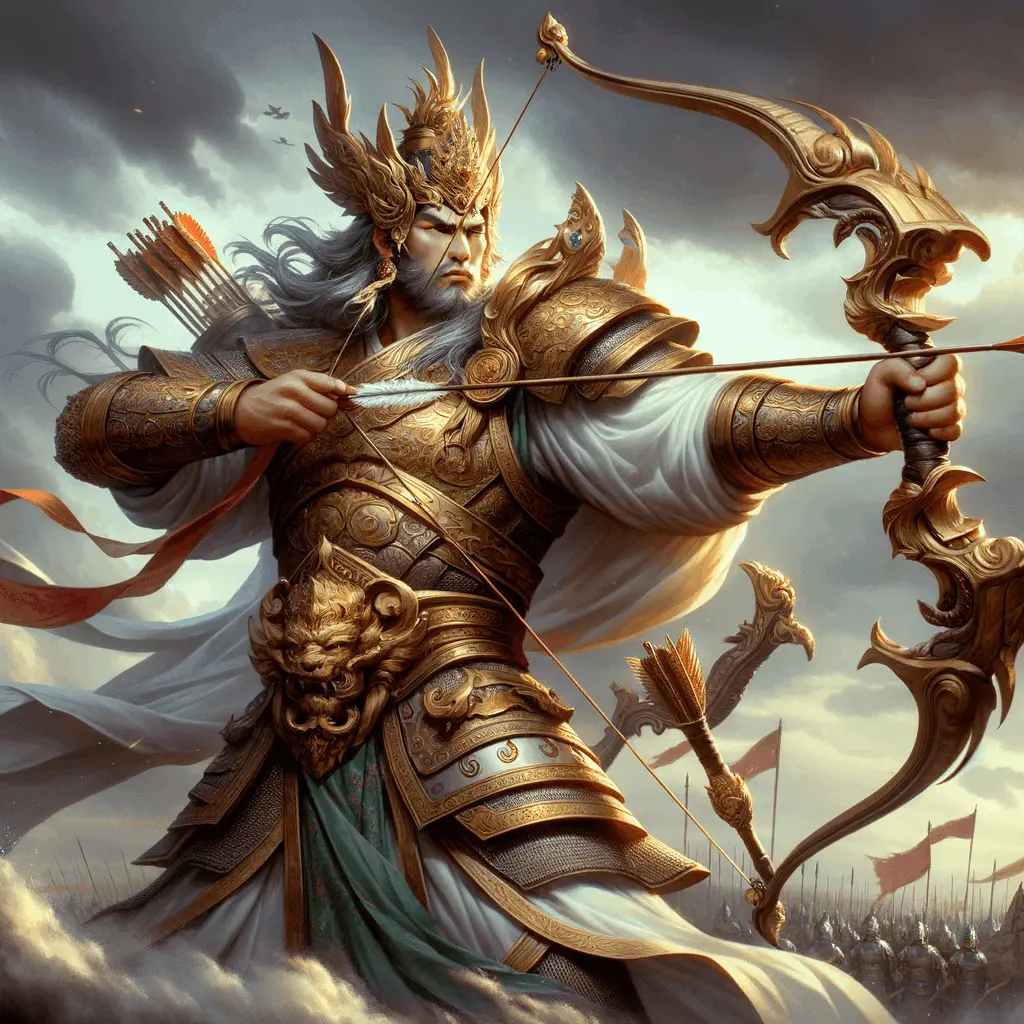
Article by Gil "hannaone"
© Copyright 2024. All rights reserved.
Images created by AI
Jumong The Great Archer and God King of Goguryeo
Jumong
Jumong, a legendary figure in Korean history, is celebrated as the founder of the Goguryeo Kingdom. Known for his exceptional archery skills and his rise to become a revered king, Jumong's story has left a lasting impact on Korean culture. The story of Jumong, the founder of Goguryeo, is a fascinating mix of possible fact and myth.
Background of Jumong
The legend of Jumong takes us back to a time of great upheaval in ancient China, around 58 BCE during the Han dynasty. He was born as the son of Hae Mosu and Lady Yuwha and faced many trials and adventures that would ultimately lead to the founding of Goguryeo. His mother, Lady Yuwha, a concubine of King Geumwa of Buyeo, was the daughter of the water god Haebek, who was seduced by Hae Mosu, a son of Heaven. She was later kept in a room of King Geumwa's palace for her indiscretion but became pregnant with a large egg after being followed by a ray of sunlight as she walked around the room.
When Geumwa realized he couldn't destroy the egg, he allowed Lady Yuwha to hatch it and raise a son. This boy, named Jumong, began to show extraordinary abilities. By the age of seven, he had unparalleled skill in archery and quickly became known as a master archer who never missed his target.
Sometime around 38 BC Jumong married Ye So-ya, who gave birth to his son Yuryu.
Escape
As the eldest of Geumwa's seven sons, Daeso was constantly worried that his younger brother Jumong would become a threat to him. To keep Jumong occupied and away from the political scene, their father Geumwa tasked him with taking care of the horses. However, Jumong had other plans. He deliberately fed more food to slower horses and less to faster, more talented ones in order to make them look weaker.
This ploy worked when they went on a hunting trip and Jumong was given a thin horse and fewer arrows. Despite these disadvantages, Jumong was able to out-hunt everyone else thanks to his horse's speed. This only fueled Daeso's desire to eliminate his brother. Seeing the danger increasing, Yuhwa begged Jumong to leave and use his skills elsewhere for his own safety.
Jumong, along with his three friends Oi, Mari, and Hyeopbo, fled from Eastern Buyeo after being pursued by Daeso's cavalry. However, upon reaching the Eomsa River they were faced with a dilemma - there was no bridge for them to cross. In a moment of desperation, Jumong called upon the river for assistance, revealing himself as the son of Heavenly God and maternal grandson of Habaek. Miraculously, fish and softshell turtles appeared and formed a bridge for Jumong to cross before disappearing just as Daeso's troops arrived.
Jumong and Goguryeo
After narrowly escaping death, Jumong encountered three individuals in Modungok (or Modun Valley) each dressed in distinct clothing. Taking this as a sign from above, Jumong bestowed a surname upon each of them: Jaesa, clothed in hemp, became known as Geuk Jaesa. Mugol, donning monk garb, was named Jungsil Mugol and Mukgeo, wearing waterweed cloth, was given the name Sosil Mukgeo . Together they journeyed to Holboncheon where Jumong assigned roles to each person.
Jumong's dream was to build a palace on the mountain, but his financial limitations prevented him from doing so. Instead, he built a modest thatched house near the Biryu River and settled there. He called his newly established nation Goguryeo and changed his surname to Go when he turned 21 in 37 BC. News of this new kingdom spread quickly, and many people were drawn to join him.
During this time Daeso spread word that Jumong's wife and son had perished.
The Reign of Jumong
In the beginning of his reign in 37 BC, Jumong took immediate action against the Mohe in fear of potential raids at the border. After a fierce battle, the Mohe were forced to surrender and submit to Jumong's rule.
One day, while Jumong was out hunting, he saw some vegetable leaves floating on the Biryu River. Curious, he followed the river upstream and eventually reached Biryuguk, also known as the Kingdom of Biryu. The king of Biryu, Song Yang, noticed Jumong and demanded that he submit to his authority since Biryu was a stronger and older state. After a heated argument, the two kings decided to settle their differences through an archery competition, which Jumong ended up winning. In June of 36 BC, Song Yang surrendered to Jumong and he renamed the land Damuldo. He then appointed Song Yang as the Marquis of Damul and continued to rule over the region.
In the month of July in 34 BC, the palace and surrounding walls were officially completed. In October of 32 BC, Jumong dispatched Oi and Bu to conquer the State of Haengin in the southeastern region of Taebaek Mountain. Continuing his conquests, in November of 18 BC, Jumong ordered Bu Wiyeom to attack the Northern Okjeo territory, successfully bringing them under Goguryeo's rule.
After the death of Yuhwa in Eastern Buyeo, a funeral was held to honor her and a shrine was built in her memory. Jumong, grateful for the kindness and generosity of Geumwa, sent an envoy and gifts to Buyeo in October as a show of his appreciation.
In the year 19 BC, Yuryu and his mother fled their home in Buyeo and found refuge in Goguryeo, disproving Daeso's claim that they were dead. As Jumong's first son, Yuryu was recognized as the true crown prince. However, just a few months later in September, Jumong passed away at the young age of 39. He was buried at Yongsan and honored with the title Dongmyeong-Seongwang after his death.
